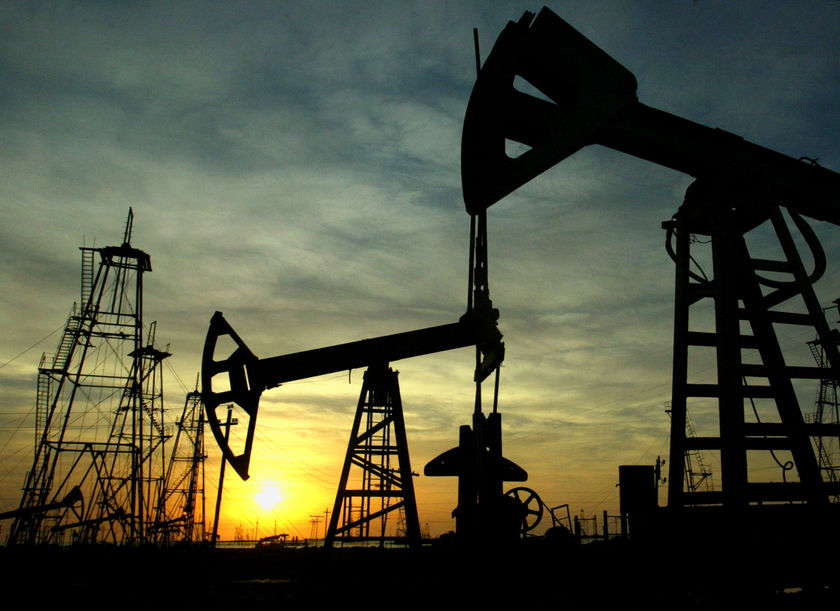by Sara Vakhshouri
In the last week of April, the US Energy Department issued a report showing that Iran’s crude oil and condensate exports have dropped to their lowest level in the past 26 years. The Energy Information Administration (EIA) estimates that Iran’s net oil export revenue in 2012 was $69 billion, down from $95 billion in 2011.
In 2012, the average export of crude oil and condensate declined to around 40 percent, from 2.5 million barrels a day (mb/d) in 2011 to about 1.5 mb/d in 2012. Due to the substantial drop in exports and a lack of sufficient storage capacity, the EIA estimates that Iran had to reduce 17 percent of its crude oil and condensate production. Iran was, on average, the second largest producer of OPEC in 2012. But for some months, its production fell below Iraqi levels for the first time since 1989, moving it from second to third place.
This dramatic drop in oil production and exports are the result of the US and EU sanctions implemented since late 2011 that targeted Iranian oil income, which makes up 80 percent of Iran’s total export earnings and about 60 percent of the government’s revenue.
The new sanctions ban European insurance companies from offering any coverage to refineries that process Iranian crude oil. Although a tight market combined with higher prices has made up for some of Iran’s income losses, it is believed that these sanctions have hurt Iranian oil exports in an unprecedented and significant way.
The new sanctions also present a major challenge for Iran to sell its oil to major customers, particularly India, Japan and South Korea. According to the US Energy Department, Iran’s crude oil export to India and South Korea is particularly going to be influenced by these sanctions as their refineries rely mainly on European insurance companies. Previously, Iran could skirt the EU ban on insurance by offering its domestic insurance. But the new sanctions make this impossible. This means Tehran is going to have an even harder time marketing and selling its crude oil: its major customers have to start searching for alternative supplies in the market.
The refinery overhaul season is also going to make it harder for Iran to sell its oil. The second quarter of each year is the period for maintenance overhaul for refineries in the Northern Hemisphere that results in a seasonal decline in demand. It is expected that the spike in Iranian crude oil from the last quarter of 2012 will drop once again due to the new EU restrictions on refinery insurance and seasonal demand.
It is not expected that Iranian crude oil production will rise soon. According to the EIA report, Iran’s oil production in 2012 was around 700 thousand b/d, lower than in 2011. The natural production decline of Iran’s matured fields is playing a major role in curbing its crude oil production. Iran needs to invest in its oil fields in order to maintain its production but the large scale of prohibitions on investments in the country’s oil and gas fields imposed by the US and EU prevents any further increase of the country’s production.






Dear Dr. Sara,
I read with interest your article about the falling Iranian oil production. I do agree with your point of view and the data you furnished me about the current situation in Iran. However, from what it’s written on the article, it seems that the solely responsibles of this situation are the EU and US sanctions for the well – known reasons: these sanctions are for sure one of the main reasons that have prevented domestic investment to improve the situation of Iranian oil extraction. Leading, therefore, to an extremely low level of production. However, we must not forget that Iran over the years has lost an average of about 8% (per year) of its production capacity, not because there is not oil but because the Iranian government has not been able to plan innovative interventions on the extraction techniques which are obsolete. So, in my point of view, there is a mix of these two factors that acts on the nowadays Iranian situation.
Thank you very much for your time and for your consideration.
Kind regards.
Dear Dr.Sara,
Thank you for presentation, I would like to add a clear point, the Persian(or Arabian) Gulf is a region which is the major supplier of crude oil for the whole world, if I say since 1970, then now over 40 years. Consequently, it would be an arrogant attitude from us if we are considering that this situation will remain for ever. Crude oil is consumed at an enormous consumption rate of over 85 million barrels every 24 hours. Our consumption is equivalent to a continuous flow of a wide river. Will this river be able to flow for ever???